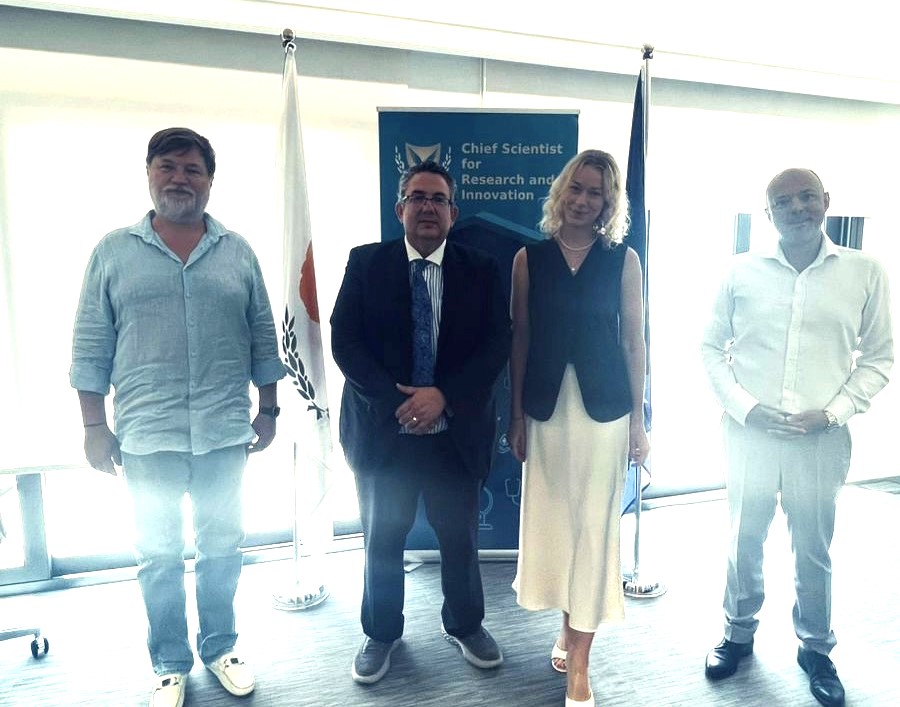Cyprus is making impactful progress in developing a high-performance computing, chip and quantum cluster, following a recent meeting between Chief Scientist Demetris Skourides and Phystech Technologies founder and CEO Yuri Komarov, together with head of operations Maria Ocheretina.
Phystech, a Cyprus-headquartered research and development company, focuses on IP cores and blocks for microprocessors, microcontrollers and other digital technologies.
During the talks, the company highlighted the success of its engineering team in creating a digital technology capable of generating cryptographically secure and statistically perfect true random numbers at ultra-fast speeds.
Its first commercial product, an advanced true random number generator (TRNG), can be applied across sectors such as supercomputing, banking, cybersecurity, telecommunications and IoT.
According to the company, this opens new opportunities for Cyprus in research, innovation and the design of high-performance computing, CPUs and Edge AI, while also creating skilled jobs.
The solution consists of several IP cores, including a TRNG and Random Number Conditioner, each the subject of a separate patent application that Phystech plans to establish in Cyprus.
The company is expanding and will soon recruit engineers in R&D and quantum computing, mainly in Cyprus, as it prepares to launch a quantum computing systems project.
Phystech, already a mature R&D company, is targeting global markets.
It is focusing on data giants such as Google, Amazon, Microsoft and Apple, and is in early discussions with chip manufacturers including Intel, AMD, Nvidia and ARM Laboratories in Cambridge, as well as telecoms leaders Broadcom, Qualcomm, NCR, Mediatek and Samsung.
Skourides described the development as “an exciting step for the Cypriot R&I ecosystem.”
He said that if Phystech succeeds with its breakthrough technologies and IP, Cyprus will have the chance to build an emerging chip cluster.
Although still at an early stage, he noted that with pioneering firms such as Phystech, Tenstorrent and SignalGenerix, alongside institutions including the University of Cyprus (UCy), the Chip Competency Centre and the Cyprus University of Technology (Tepak), the cluster could generate more than $1 billion in revenue by 2035 and create new high-tech jobs.
“We have work to do. We must accelerate our efforts to support these initiatives,” Skourides concluded.






Click here to change your cookie preferences